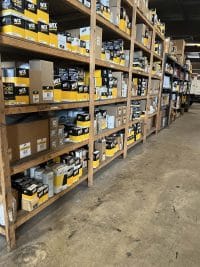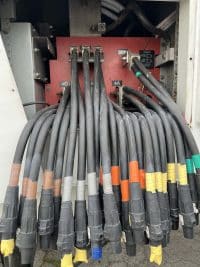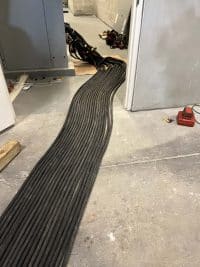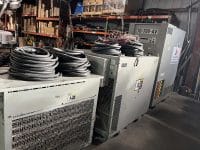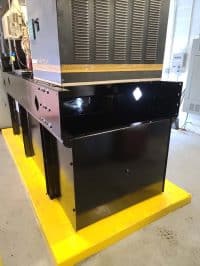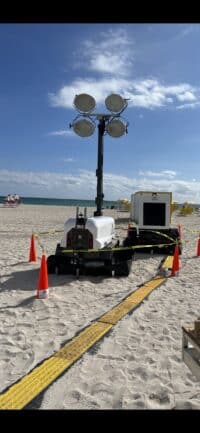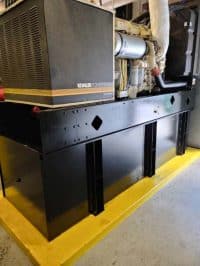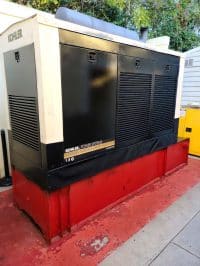Rust Remediation
Rust Remediation Service
From generator enclosures to fuel tanks, rust will wreak havoc on equipment and parts.
Over the years, many environmental hazards will erode the generator enclosure and belly fuel tank. In South Florida, the salt in the air will expedite corroding of this equipment. Rain, flooding, and sprinkler systems will also often corrode and rust the generator enclosure and tank over time. Wildlife occasionally take shelter in these enclosures and may bring debris and plant matter inside that sit and attract moisture. The fuel tank and enclosure on a generator will eventually rust. When rust eats through the steel, it can lead to fuel leaks or damaged internal engine parts.
Megawattage recommends rust remediation as a preventive maintenance service before it becomes a significant problem. By taking proactive measures to address corrosion, you not only safeguard the operational integrity of your machinery but also protect your bottom line from the potential impact of costly repairs and replacements.
How does rust form?
Rust, referring to the reddish-brown result of oxidization, is produced when metal comes into contact with oxygen, water, or airborne acidic substances. Whether indoors or outdoors, rust will surface and decompose your equipment if not treated.
Megawattage rust remediation process
Rust build-up must be scraped off with a chisel and evened out with a grinder wheel. This labor-heavy process of grinding down the rust and smoothing the top of the fuel tank will be performed wherever rust is found. In instances where the rust has eaten through a small area of the fuel tank, an epoxy adhesive can be used to repair the damage. If a larger area of the tank or generator enclosure has been corroded through by rust, then a piece of sheet metal may used to patch the hole.
After this has been completed, we will apply a rust remediation and inhibition chemical to all affected areas. In final steps, the entire fuel tank will be painted, by way of brush and roller, with rust-inhibiting black paint. If work has been done to the enclosure, then we will coat it with the matching, factory-provided paint. All rust chips and other waste will be cleaned up and disposed of as per EPA regulations.
When it comes to rust remediation, we take pride in offering comprehensive solutions that prioritize the durability and safety of your equipment. From meticulous surface preparation to expert application techniques, our process is designed to restore and protect your investment effectively.
-
1
Is Rust Only a Cosmetic Issue?
No. Because rust effects the integrity of the surface, the equipment and its parts will eventually decompose and become inoperable creating safety and financial repercussions.
-
2
If I Notice Rust on My Fuel Tank, Can I Just Patch It?
No. Rust will spread and worsen if not treated properly. This can damage your tank and contaminate the fuel.
-
3
If My Generator is Located Within the Building, Can it Still Rust?
Yes. Rusting is a process of oxidation, where oxygen and water work together to produce iron oxides. Because these molecules already exist in the air, equipment may be susceptible to rust regardless of not being exposed to the outdoor environment.
